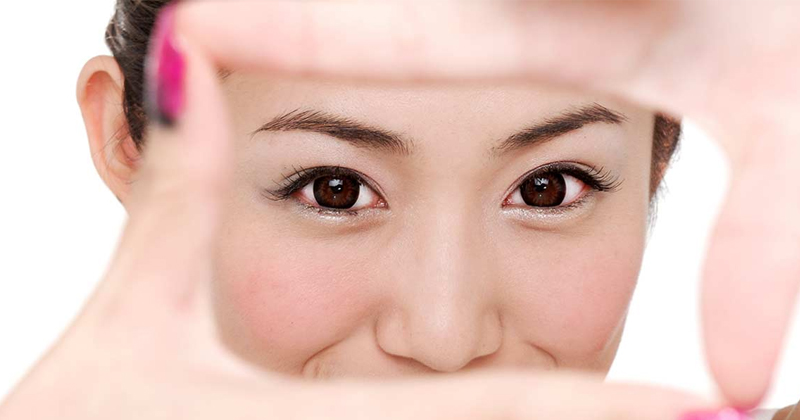Eye Care Tips
Sunglasses or Goggles
It is very important to wear a sunglass during outdoor activities. This helps to protect the eyes from harmful UV radiations. Sunglasses should be close to the eyes and should cover the entire eye area. Shades having wraparound frames have wider lens and thus provides better eye care. Polarized lenses are ideal for people who work outside because they block glare.
SEE ALSO: Sunglasses Under 1000 Rupees
Wear A Hat
A hat provides extra protection from the harmful sun rays. A wide brimmed hat will protect the eyes and eyelids from the radiation thereby reduce the risk for skin cancers.
Eat Healthy and Stay Hydrated
A well-balanced diet and proper hydration help to maintain healthy eyes. Diet should be rich in antioxidants which fight against macular deterioration and cataracts. Foods with Vitamin C, Vitamin E and zinc can improve eyesight and reduce long-term vision problems.
Summer season contributes to dehydration which has a negative effect on eyes. Dry eyes and vision problems can occur if the body is dehydrated. Drinking enough fluids (minimum eight glasses or 2 liters per day) help in assisting normal eye function.
Avoid Midday Sun
Sun rays are most harmful between 10 a.m. and 3 p.m. Try to stay inside during this time. If it is necessary to go outside then wear polarized lenses since they block the glare. Always wear glasses while driving during this time.
Maintain Personal Hygiene
Communicable diseases and infections are common in summer season. Washing hands daily helps to keep eye-infections like conjunctivitis at bay. Conjunctivitis is spread after touching something that someone else has touched after they rubbed their eyes.
After any eye surgery, the eyes are more vulnerable to infection. The Centers for Disease Control recommends that washing hands before applying any medicines to the eyes, and avoid rubbing the eyes as much as possible to avoid infection.
Keep Away From Chemicals
Exposure to chemicals can harm the eyes. People are more prone to chemical exposure while at work. Soap bubbles, spray paints and cleaning solutions can also cause chemical burn to the eyes. It is necessary to wear protective goggles while working with hazardous chemicals. If ignored these chemical burns can cause severe damage or blindness.
Eye Drops
Over the counter eye drops helps to ease the pain or itching of the eyes. Patients recovering from eye surgery can rely upon this eye drops. Eye drops are suitable for relieving allergies. Symptoms of dry eye are mostly due to exposure of contaminants. Eye drops provide quick relief for dry eyes.
Get Ample Sleep
A good night’s sleep is very important for healthy eyes. Minimum of eight hours sleep is required, particularly with a busy life style. Studies suggest that people who aren’t getting sufficient sleep start to experience reduced cognition on visual tasks. Tiredness eventually leads to dry eyes. This promotes rubbing of eyes to stimulate the lacrimal gland, which enhances the possibility of exposure to irritants and diseases. Spending more time in front of television and computers in the night adds to the stress. So it is recommended to sleep for adequate time.
Protection Of Eyes During Swimming
Chlorine present in the pool can be harsh on the eyes. Wearing protective goggles before dipping in to the pool is necessary. The recurrent exposure to chlorine harmfully affects the integrity of the corneal epithelium. The epithelium is a protective layer to the cornea. Any harm to that epithelium leads to an increased chance of corneal abrasion or other eye infections.
Eye pack – Eye packs help to sooth eyes and provide a cooling effect. The following eye packs which are readily available in the kitchen help to provide great relief to eyes.
Cucumber – Place sliced cucumber over both the eyes and leave it for twenty minutes. Cucumber juice can also be applied around the eyes.
Potato – Potato can be mashed and the juice can be applied around the eyes. Keeping potato slices over the eyes provide cooling effect.
Green tea -Green tea bags can be placed over the eyes in order to relax the eyes.
Vitamin A – Vitamin A is very vital for healthy eyes. Green leafy vegetables, citrus fruits, carrots, and nuts are rich in Vitamin A. Taking Vitamin A rich diet or supplements ensure eye health in summer.
Common Eye Problems In Summer
Conjunctivitis
Infection of the outer membrane of the eyeball and the inner eyelid is termed as conjunctivitis. It is highly contagious and is very common in summer. Maintaining proper hygiene is important in preventing this disease.
Below tips may help to put off the spread of the infection:
- Stay away from crowded places
- Avoid sharing personal items like towels, napkins, bed sheets etc
- Use cotton swabs to wipe the eyes and then discard them, instead of using a napkin
- Washing hands frequently
- Washing eyes with cold water
Eye Allergy
Summer contributes to more dust, pollen and several other allergens. Dust mites are also present during summer. Their residue can spread in the air and produce an allergic response in the eyes.
The following measures are helpful in preventing allergy:
- Keep away from dusty environments
- Sunglasses helps to protect against allergens
- Wash eyes with cold water
- Applying a cold compress on eyelids
- Maintaining a clean and dust free home
Dry Eye
Dry eyes are marked by burning sensation and irritation in the eyes. Application of artificial tears, avoiding air conditioning, etc helps to ease the pain.
Importance Of Eye Care
Eye related diseases like Hay fever; Conjunctivitis etc can occur if eyes are not properly taken care of. Sunlight can augment the long-term risk of developing conditions such as cataracts. A cataract is a clouding of the eye lens that negatively affects vision. Cataracts, Glaucoma, and other vision related problems can be effectively treated in some of the best eye hospitals in India.




